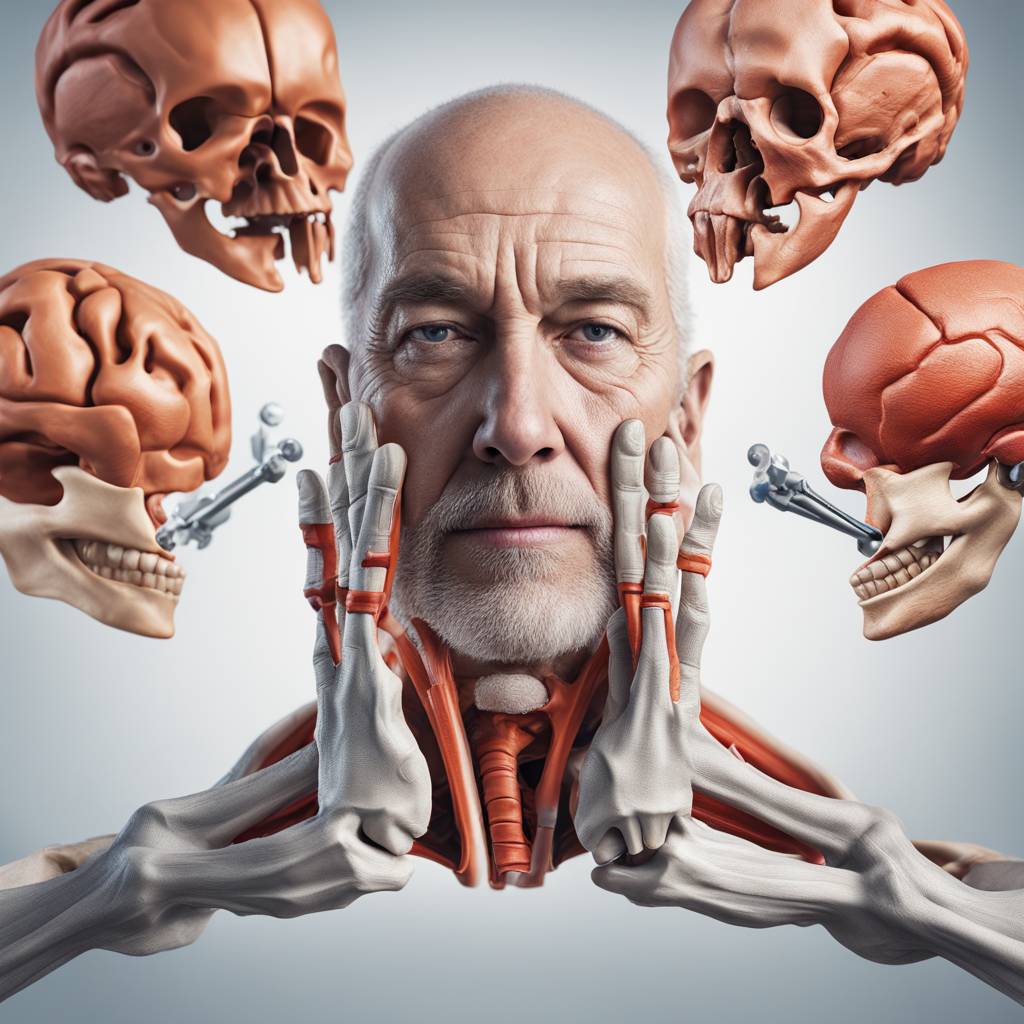A recent study conducted by researchers from the U.S. and China has revealed a potential link between chronic musculoskeletal pain (CMP) and an increased risk of cognitive decline, accelerated brain aging, and dementia. The study, published in Nature Mental Health, examined MRI data from over 9,000 individuals in the United Kingdom and found that people with knee osteoarthritis (KOA) experienced more rapid brain aging than those without the condition. This connection between inflammation, CMP, and cognitive function provides insight into how these factors may be interrelated and warrant further investigation.
Inflammation within the body has long been associated with various neurological conditions, such as depression, Alzheimer’s disease, Parkinson’s disease, traumatic brain injury, and more. Chronic pain specialists emphasize that chronic inflammation from conditions like knee osteoarthritis can impact the brain’s processing patterns and lead to changes in structure and function. The brain’s response to chronic pain, including alterations in pain processing and disruptions in cognitive functions, can ultimately contribute to the accelerated cognitive decline observed in individuals with CMP.
The study points to a potential genetic link involving the gene SLC39A8, which plays a role in the transport of essential metals like ferrum, manganese, zinc, and the neurotoxic metal cadmium. Variations in this gene may affect the mitochondria’s uptake of these metals, particularly manganese, crucial for brain cell health and function. Genetic mutations impacting metal transport and exposure levels could lead to negative effects on cognitive function and overall health. The wide range of health issues associated with SLC39A8 deficiencies underscores the importance of further research to unravel the complexities of the gene’s impact on cognitive decline.
While the study focused primarily on the relationship between chronic knee pain, brain aging, and the SLC39A8 gene, pain management specialists suggest that exploring other chronic inflammatory pain disorders could provide valuable insights into potential pathways to cognitive decline. Understanding the broader spectrum of chronic pain conditions and their impact on brain health could enhance our understanding of the mechanisms underlying cognitive decline. By broadening the scope of research to include other chronic pain disorders, researchers may uncover additional genetic, inflammatory, and neurological pathways involved in the accelerated brain aging seen in individuals with CMP.
Despite the study’s limitations, such as its narrow focus on chronic knee pain and a specific genetic link, the findings serve as a starting point for further investigation into the complex relationship between inflammation, chronic pain, brain aging, and cognitive decline. By expanding the research scope to include a variety of chronic pain conditions and genetic factors, scientists may gain a more comprehensive understanding of the mechanisms underlying cognitive decline and dementia in individuals with CMP. Ultimately, this research offers valuable insights into the potential connections between musculoskeletal pain, brain health, and overall cognitive function, highlighting the need for continued exploration in this field.













